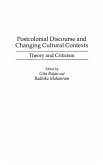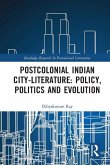Since the 1960s American and Western European gays have set the agenda for sexual liberation and defined its emergence. Western models of homosexuality often provide the only globally recognizable frameworks for discussing gay and lesbian cultures around the world, and thus Western interpretive schemes are imposed on non-Western societies. At the same time, gay and lesbian lifestyles in emerging countries do not always neatly fit Western paradigms, and data from those countries often clash with dominant Western models. So too, the literature of emerging countries often depicts homosexuality in ways which challenge the existing tools of Western literary critics. The thirteen contributors to this book examine the implied imposition of a heavily capitalistic, white, and generally male model of homosexuality on the emerging world. By combining postcolonial and queer theoretical approaches, this volume suggests alternative frameworks for describing sexuality around the world and for exploring non-Western literary representations of gay and lesbian lifestyles. The volume concludes with a chapter assessing new questions in both postcolonial and queer theorizing that suggest common concerns and many avenues for future research.
Hinweis: Dieser Artikel kann nur an eine deutsche Lieferadresse ausgeliefert werden.
Hinweis: Dieser Artikel kann nur an eine deutsche Lieferadresse ausgeliefert werden.








